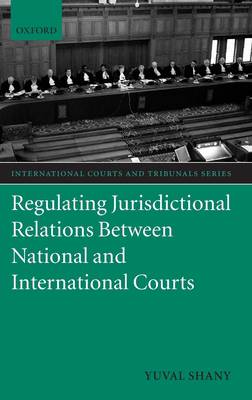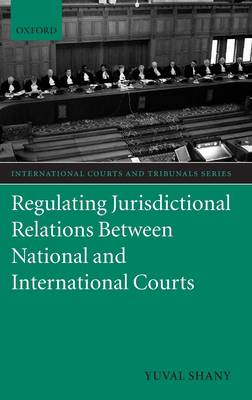
Bedankt voor het vertrouwen het afgelopen jaar! Om jou te bedanken bieden we GRATIS verzending aan op alles gedurende de hele maand januari.
- Afhalen na 1 uur in een winkel met voorraad
- Gratis thuislevering in België
- Ruim aanbod met 7 miljoen producten
Bedankt voor het vertrouwen het afgelopen jaar! Om jou te bedanken bieden we GRATIS verzending aan op alles gedurende de hele maand januari.
- Afhalen na 1 uur in een winkel met voorraad
- Gratis thuislevering in België
- Ruim aanbod met 7 miljoen producten
Zoeken
Regulating Jurisdictional Relations Between National and International Courts
Yuval Shany
€ 233,95
+ 467 punten
Uitvoering
Omschrijving
This book investigates the growing jurisdictional interaction between national and international courts. In particular, it aims to explore what, if any, rules of international law could, or perhaps should govern such interactions, and regulate forum selection or multiple proceedings involving national and international courts. In addition, the book explores the standards of review employed by international courts vis-à-vis the decisions of their domestic counterparts and vice versa. It posits that the regulation of such interactions ultimately depends on the selection of the overarching paradigm that governs the relations between national and international courts (hierarchical as opposed to non-hierarchical and disintegrative or integrative conceptual frameworks). Following academic discussion of the problems and solutions pertaining to the interaction between national and international courts, the book considers the potential applicability of several jurisdiction-regulating measures to jurisdictional interactions between national and international courts. These include rules on forum selection and rules designed to regulate multiple proceedings (e.g., lis alibi pendens and res judicata), utilization of comity based measures and doctrines, such as discretionary stay or dismissal of proceedings and margin of appreciation judicial review, and examination of the prohibition against abuse of rights. It provides lawyers and academics with a 'tool kit' of measures which could be employed in cases involving jurisdictional interactions between national and international courts.
Specificaties
Betrokkenen
- Auteur(s):
- Uitgeverij:
Inhoud
- Aantal bladzijden:
- 254
- Taal:
- Engels
- Reeks:
Eigenschappen
- Productcode (EAN):
- 9780199211791
- Verschijningsdatum:
- 11/10/2007
- Uitvoering:
- Hardcover
- Formaat:
- Genaaid
- Afmetingen:
- 155 mm x 236 mm
- Gewicht:
- 544 g

Alleen bij Standaard Boekhandel
+ 467 punten op je klantenkaart van Standaard Boekhandel
Beoordelingen
We publiceren alleen reviews die voldoen aan de voorwaarden voor reviews. Bekijk onze voorwaarden voor reviews.












